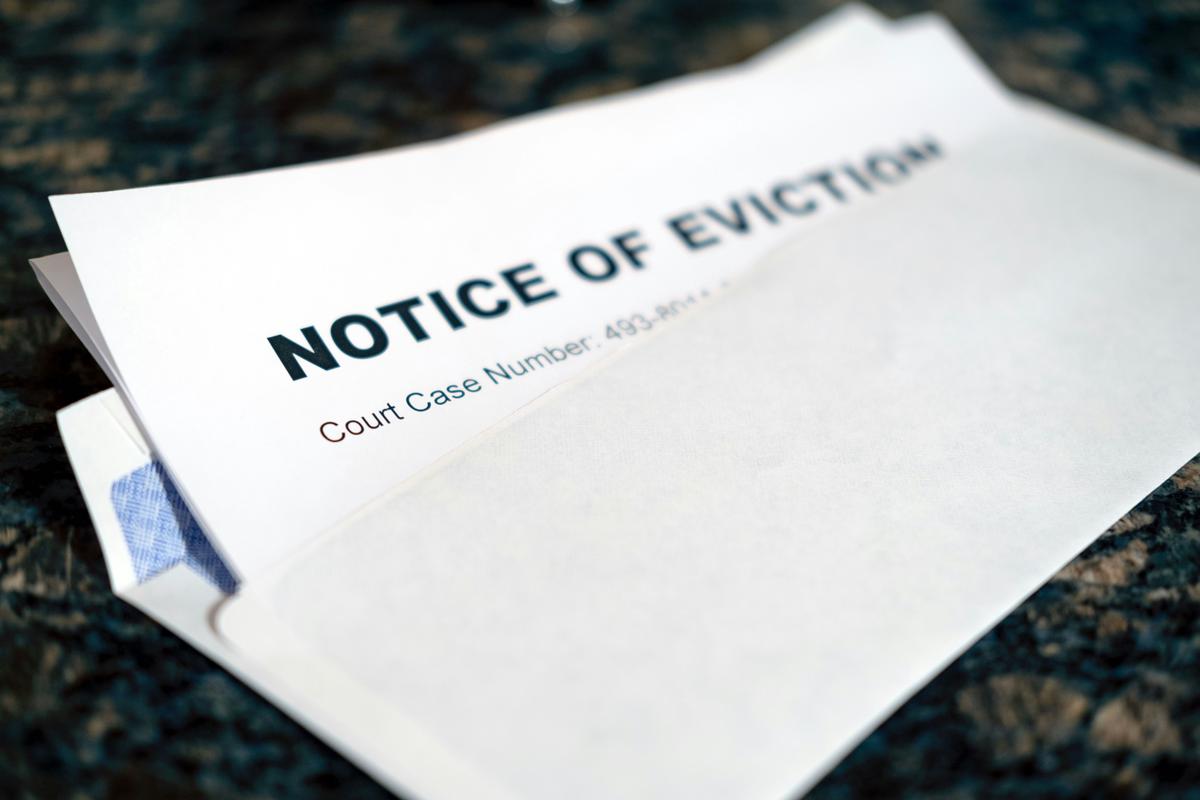Going through or starting an eviction in Prince George’s County, MD, can seem daunting. However, a clear understanding of the legal steps involved can significantly ease the process for both landlords and tenants. This guide aims to demystify the eviction process by providing a straightforward walkthrough of each stage, ensuring clarity and accessibility for all parties involved.
Understanding the Eviction Process in Prince George’s County, MD
Navigating the Legal Process of Eviction in Prince George’s County
Experiencing or initiating an eviction can be challenging, yet understanding the legal steps involved helps manage what comes next—whether you’re a landlord or a tenant. Here’s a straightforward guide on the eviction process in Prince George’s County tailored to maintain clarity and accessibility.
Understand the Grounds for Eviction
Firstly, recognize what legally constitutes a reason for eviction. Common grounds include failure to pay rent, violation of lease terms, property damage, or illegal activity on the premises. Knowing the specific reason is crucial as it dictates the next steps in the eviction process.
Start with a Notice
For landlords, your initial move is to provide your tenant with a written notice. The type of notice varies based on the eviction reason. For instance, a “Pay or Quit” notice is given for unpaid rent, granting the tenant a short window to pay before eviction proceedings begin. Ensure this notice is detailed, specifying the reason for eviction and the deadline by which actions must be taken.
File an Eviction Suit
If the tenant does not resolve the issue (e.g., by paying the due rent or correcting a lease violation), the next step is to file an eviction lawsuit, officially known as a Complaint and Summons in Rent Court. This legal document must be filed with the District Court of Maryland located in Prince George’s County. Filing fees will apply, and it’s essential to provide all relevant documentation, including the lease agreement and the prior notice given to the tenant.
Attend the Court Hearing
Both parties will be summoned to court on a specified date. During this hearing, presenting evidence to support your claims is pivotal. For landlords, documentation might include the lease, records of unpaid rent, and any communication regarding lease violations. Tenants also get an opportunity to present their side, possibly disputing the eviction or highlighting any discrepancies in the landlord’s compliance with legal procedures.
Wait for the Judge’s Decision
After hearing both sides, if the judge rules in favor of eviction, an order for the tenant’s removal will be issued. The ruling will include a timeframe within which the tenant must vacate the property. This order is enforceable by a county sheriff, not the landlord.
Eviction is a Legal Procedure
It is crucial to remember that landlords cannot forcibly remove tenants or change locks without a court order. Doing so can lead to legal repercussions. Both tenants and landlords should understand their rights and obligations under Maryland’s law to ensure a fair process.
Access Resources
For those facing this daunting process, Prince George’s County offers resources and legal aid to navigate eviction proceedings. Tenants may seek support from local legal aid organizations to understand their rights and potential defenses. Landlords might consult with a lawyer to ensure compliance with all local and state regulations.
Approaching eviction with a clear understanding of these steps can alleviate some stress involved in this complex process. Always aim to handle disputes professionally and legally, focusing on documentation and adherence to Maryland’s laws for a smoother resolution.

Filing for Warrant of Restitution
Filing for a Warrant of Restitution in Prince George’s County, Maryland
Once you have navigated the initial phases of the eviction process, including obtaining an eviction order from a judge, the next step towards regaining possession of your property is filing for a Warrant of Restitution. This guide will walk you through this crucial phase, breaking down the steps in a straightforward manner.
Step 1: Request the Warrant of Restitution Form
Start by acquiring the Warrant of Restitution form. This can typically be obtained from the District Court of Maryland’s website or directly from the courthouse. Ensure you get the correct form that applies to Prince George’s County to avoid any potential delays.
Step 2: Fill Out the Form Properly
Carefully fill out the form with all the required information. This will include details from your eviction order, such as the case number, parties involved, and the judge’s decision. Double-check to make sure all information is accurate and complete to prevent any setbacks.
Step 3: File the Form with the Court
Once the form is filled out, submit it to the same District Court where your eviction case was heard. You will need to pay a filing fee, which is subject to change, so it’s recommended to verify the current cost with the court beforehand.
Step 4: Await Court Approval
After filing, the court will review your request for a Warrant of Restitution. If approved, this legal document authorizes the eviction, allowing you to schedule a date with the Sheriff’s Office for the actual eviction. Processing times can vary, so patience may be necessary.
Step 5: Coordinate with the Sheriff’s Office
Upon approval, contact the Prince George’s County Sheriff’s Office to arrange a date and time for the eviction. Note that there might be a fee associated with this service, and scheduling could depend on their availability.
Step 6: Prepare for Eviction Day
On the scheduled day, ensure you are present along with the sheriff. It’s advisable to have a locksmith ready (if necessary) and any needed workers to assist with removing the tenant’s possessions, if permitted by law. Remember, evictions must be conducted respectfully and legally, adhering to the court’s guidelines.
Step 7: Follow Through After Eviction
After successfully regaining possession of your property, consider changing locks and securing the premises. It’s also wise to document the condition of the property in case future disputes arise regarding damage or repairs.
It’s crucial to adhere strictly to legal procedures throughout this process, ensuring respect for tenants’ rights and adherence to the law. Compliance not only facilitates a smoother eviction process but also minimizes potential legal repercussions. For more detailed guidance or legal advice pertinent to your specific situation, consulting with a legal expert in Prince George’s County is recommended.

Photo by chamo_007 on Unsplash
Coordinating with the Sheriff’s Office
Coordinating with the Sheriff’s Office
Once the court approves the Warrant of Restitution, the next step involves the Sheriff’s Office, playing a critical role in the eviction process. The involvement of the Sheriff’s Office ensures that the eviction follows legal guidelines, prioritizing everyone’s safety and rights.
- Notify the Sheriff’s Office: After obtaining the court’s approval, contact the Sheriff’s Office immediately. Provide them with the approved Warrant of Restitution. This document authorizes the eviction and is necessary for the Sheriff to schedule and carry out the eviction.
- Schedule the Eviction: The Sheriff’s Office will set a date and time for the eviction. They handle the logistics of scheduling, aiming to execute the eviction within a specific timeframe, as prescribed by local laws. This timing is crucial for landlords to understand, ensuring preparedness for the eviction day.
- Understand the Sheriff’s Role: On eviction day, deputies from the Sheriff’s Office oversee the entire process. Their presence ensures the eviction is conducted lawfully and peacefully. The deputies do not physically remove belongings but make sure the tenant vacates the property as ordered by the court. They confirm that tenants leave without causing disruption, respecting the legal boundaries of eviction.
- Fees and Costs: Be aware that engaging the Sheriff’s Office in the eviction process incurs fees. These costs cover the management and execution of the eviction. Landlords should inquire about these fees early in the process to budget accordingly, avoiding surprises on eviction day.
- Post-Eviction: Following the successful completion of the eviction, landlords may need to secure the property. This includes changing locks, assessing the property for damages, and proceeding with any necessary repairs. Even after tenants are evicted, remember that their belongings must be handled per local laws, usually allowing a specific period for tenants to claim their items.
- Legal Compliance: Keep in mind, throughout the process with the Sheriff’s Office, adherence to local and state laws is paramount. The Sheriff’s Office ensures that both landlords and tenants’ rights are respected during eviction. Landlords should remain informed about their legal obligations to facilitate a smooth process.
Engaging with the Sheriff’s Office is a significant step in the eviction process, marking the transition into action. Cooperation, understanding of procedures, and preparation are key elements when working with the Sheriff’s Office to execute an eviction legally and effectively. Always prioritize clear communication and adherence to legal standards to navigate this final stage of eviction with professionalism and respect for all parties involved.
Navigating the eviction process from filing the initial lawsuit to coordinating with the Sheriff’s Office can be complex, but maintaining focus on legal protocols simplifies this challenging experience. By following these structured steps, landlords can manage evictions efficiently, ensuring a lawful and respectful conclusion to rental agreements that have met unfortunate ends.

Photo by churchoftodd on Unsplash
The eviction process in Prince George’s County is structured to ensure fairness and legality at every step. By adhering strictly to the outlined procedures and respecting each other’s rights, landlords and tenants can navigate these challenging situations with dignity and professionalism. Remembering that this process is governed by law not only helps in achieving a resolution but also in maintaining respect for all parties involved. This guide serves as a beacon for those who find themselves on either side of an eviction notice, aiming to foster understanding and compliance with Maryland’s legal framework.
